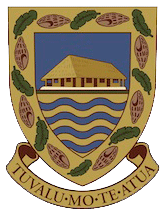 Laws, Regulations and other Instruments applying to Fisheries in Tuvalu:
Laws, Regulations and other Instruments applying to Fisheries in Tuvalu:
-
- Tuvalu Fisheries Management Act
- Fisheries Management Regulations 2025
- Maritime Zones Act Revised Edition
- Declaration of Archipelagic Baselines Revised Edition
- Declaration of Territorial Sea Baselines Revised Edition
- Declaration of the Outer Limits of the Territorial Sea Revised Edition
- Declaration of the Outer Limits of the Exclusive Economic Zone Revised Edition
- Declaration of the Outer Limits of the Continental Shelf Revised Edition
- Falekaupule Act Revised Edition
- Conservation Areas Act Revised Edition
- LABOUR & EMPLOYMENT RELATIONS ACT Revised Edition
- Judgment – FCB v Taumoana
- Fishing Crew Regulation Revised Edition
- Food Safety (Fisheries Products) (Amendment) Regulations
- Food Safety Act Revised Edition
- Tuvalu Fisheries Authority Act 2023
- Tuvalu Fisheries Management Bill 2024
- Proposed Tuvalu Fisheries Regulations 2025
Descriptions & Explanatory Notes:
The legal system and rules in Tuvalu with respect to fishing activities, including fishing laws, fisheries acts, decrees and administrative regulations concerning fishing activities and fisheries, relevant legal provisions on infringements, relevant customs procedures, relevant tax provisions etc.
The Marine Resources Act Revised Edition is the main law dealing with fisheries in Tuvalu – this copy amalgamates the two earlier documents.
The main features of the Revised Act are:
- Establishing the objective of ensuring the long-term conservation and sustainable use of the living marine resources for the benefit of the people of Tuvalu.
- The Minister responsible for fisheries has the authority for the conservation, management, development and sustainable use of the living marine resources in the EEZ of Tuvalu;
- The Minister must take into account 15 stated principles and measures in the conservation, management, and development of fisheries;
- The Minister has the power to administer fisheries and make regulations as needed;
- The Minister may appoint in writing a fisheries officer and such other officials as needed to discharge fisheries-related functions;
- The Minister may declare that a fishery important to the national interest is a “designated fishery”;
- The Fisheries Officer shall prepare a management plan for each designated fishery;
- Requirements for each fisheries management plan are specified;
- All vessels engaged in fishing must have a valid/applicable permit or a valid/ applicable license under a multilateral access agreement in accordance with the Act;
- The transhipment of fish in the Tuvalu EEZ is regulated;
- The requirements for a Tuvalu fishing vessel operating outside of Tuvalu waters are given.
The Marine Resources Revised Act implements a number of changes to the principal act which are intended to ensure that Tuvalu’s international, regional and national rights and responsibilities in relation to fisheries conservation, management and development are accommodated. The Amendment significantly increased the level of penalties for various types of offences under the Act.
The two regulations under the Marine Resources Act: the Fisheries (Vessel Monitoring System) Regulations (2000) which require the use of automatic location coordinators by commercial fishing vessels operating in Tuvalu waters; and the Conservation and Management Measures (PNA Third Implementing Arrangement) Regulations 2009 contain provisions for the implementation of a number of measures agreed by PNA and the Vessel Monitoring System Regulation.
In order to implement WCPFC management measures and resolutions, the Fisheries Department has developed a template access agreement as an effective and efficient way of implementing conservation and management measures adopted. This is an appropriate approach in Tuvalu because virtually all the fishing activity affected is conducted by foreign industrial fishing vessels. Domestic small-scale tuna fishing takes place entirely within the territorial sea and is not subject to WCPFC management measures.
The Maritime Zones Act (2012) repealed the earlier Marine Zones (Declaration) Act of 1993 and provides the framework for establishing the following maritime zones in Tuvalu;
- Declaration of Archipelagic Baselines 2012 (results in an archipelago comprising Nukufetau, Funafuti and Nukulaelae)
- Declaration of Territorial Sea Baselines 2012
- Declaration of the Outer Limits of the Territorial Sea 2012
- Declaration of the Outer Limits of the Exclusive Economic Zone 2012
- Declaration of the Outer Limits of the Continental Shelf 2012
The Falekaupule Act 1997 (revised 2000), which empowers Kaupule (island councils) to ‘provide for the improvement and control of fishing and related industries in accordance with the Fisheries Act and ‘to prohibit, restrict or regulate the hunting, capture, killing or sale of animals, reptiles, birds or fish in accordance with the Wildlife Conservation Act’: and the Funafuti Conservation Area Order (1999), promulgated under the Conservation Areas Act of 1999.